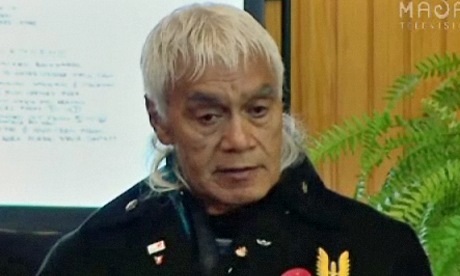In the context of Anzac Day the Cross is a symbol not of triumph but the pity of war. “There is no honour or glory in war. There’s just the smell of blood, the smell of cordite in the nose. Fear, sweat, noise,” said John Kingi, one of nine soldiers from Victor 3 Company One Platoon who had a 50 minute encounter at close quarters with 70 0r 80 Viet Cong on June 12 1968. One soldier was killed, three seriously injured.
“Thank you for your refreshing Easter issue. After more than 2000 years of Christian history, the cross remains an inescapable symbol,” wrote Paul Oestreicher in a letter to the Editor of the DomPost. He said that “in the context of Anzac Day, it is not as a symbol of triumph but of the pity of war, suffering and death.”
John Kingi’s story is about the not the triumph but the pity of war. Wars continue to crucify all who are involved in them. On returning from his third tour of duty, Kingi told the Herald on Sunday, he was attacked as he paraded down Queen St in Auckland. “New Zealand society rejected us – so I rejected New Zealand society.”
He travelled to Africa, South America, India – and then returned to live in a Viet Cong-style bunker deep in the Ureweras. But eventually his wartime comrades persuaded him to rejoin society. Today, he is 66 years old and lives near Gisborne – but he still suffers flashbacks to that day in the Vietnam jungle in 1968.
“It made us what we are today; it turned us from boys into men,” he says in the documentary. “It was the day that we were baptised in the fires of war.”
He told his story along with his surviving comrades in a documentary on Maori Television on ANZAC day
Source
New Zealand Herald
Dom Post
Image: Maori Television
